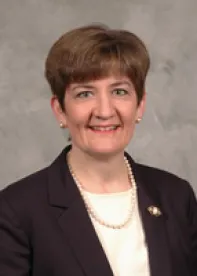In the case of Nevada v. Bank of America Corp., 672 F.3d 661 (9th Cir. 2012), the Ninth Circuit held that a parens patriae suit filed by the attorney general of Nevada was not a "mass action" under CAFA. Previously, the Fifth and the Seventh Circuits had issued conflicting rulings on this same question. The Nevada case arose as part of the fall-out from the foreclosure crisis. The Nevada Attorney General sued Bank of America (BoA), alleging that BoA had violated the state’s Deceptive Trade Practices Act by misleading consumers about the bank’s loan modification and foreclosure processes. The suit was filed in state court, but BoA removed the case to federal court claiming the case was either a "class action" or "mass action" under CAFA, and that the case arose under federal law. The district court agreed with BoA that it had federal question jurisdiction and that the action was a class action under CAFA. The district court, however, concluded that the action was not a mass action under CAFA. Nevada appealed the district court’s order denying remand to the Ninth Circuit.
After the district court issued its order denying remand, the Ninth Circuit issued its decision in Washington v. Chimei Innolux Corp., 659 F.3d 842, (9th Cir. 2011) in which it held that attorney general enforcement actions were not removable as "class actions" under CAFA. In accord with its decision in Washington, the Ninth Circuit held that the case against BOA was not a class action under CAFA. The Ninth Circuit also concluded that there was no federal question jurisdiction because there was no clear rule that demanded the case be heard in federal court and a case that merely references federal law is not removable.
Next, the Ninth Circuit considered whether a parens patriae action could be a mass action under CAFA. In LG Display Co., Ltd. v. Madigan, 665 F.3d 768 (7th Cir. 2011), the Seventh Circuit held that a parens patriae suit was not a mass action under CAFA because the attorney general was the only plaintiff. In contrast, in Louisiana ex rel. Caldwell v. Allstate Ins. Co., 536 F.3d 418 (5th Cir. 2008), the Fifth Circuit ruled that a parens patriae action against insurance companies qualified as a mass action because the insurance policyholders were the "real parties in interest" as opposed to the state attorney general. The Ninth Circuit concluded that the State of Nevada, as opposed to the individual consumers, was the real party in interest in the lawsuit against BoA. While a mass action under CAFA requires 100 "real parties in interest," in the words of the Ninth Circuit, the "State of Nevada is the real party in interest, so the action falls 99 persons short of a 'mass action.'"



 />i
/>i

